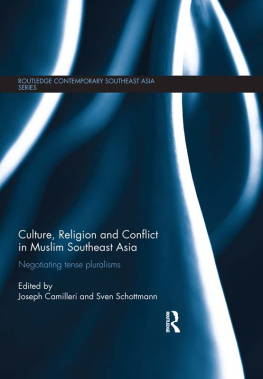ROUTLEDGE LIBRARY EDITIONS: CULTURAL STUDIES
Volume 2
DYNAMICS OF CULTURE
Dynamics of Culture
J. Zvi Namenwirth and Robert Philip Weber
First published in 1987 by Allen & Unwin, Inc.
This edition first published in 2017
by Routledge
2 Park Square, Milton Park, Abingdon, Oxon OX14 4RN
and by Routledge
711 Third Avenue, New York, NY 10017
Routledge is an imprint of the Taylor & Francis Group, an informa business
1987 Allen & Unwin, Inc.
All rights reserved. No part of this book may be reprinted or reproduced or utilised in any form or by any electronic, mechanical, or other means, now known or hereafter invented, including photocopying and recording, or in any information storage or retrieval system, without permission in writing from the publishers.
Trademark notice : Product or corporate names may be trademarks or registered trademarks, and are used only for identification and explanation without intent to infringe.
British Library Cataloguing in Publication Data
A catalogue record for this book is available from the British Library
ISBN: 978-1-138-69145-2 (Set)
ISBN: 978-1-315-45997-4 (Set) (ebk)
ISBN: 978-1-138-69946-5 (Volume 2) (hbk)
ISBN: 978-1-315-51217-4 (Volume 2) (ebk)
Publishers Note
The publisher has gone to great lengths to ensure the quality of this reprint but points out that some imperfections in the original copies may be apparent.
Disclaimer
The publisher has made every effort to trace copyright holders and would welcome correspondence from those they have been unable to trace.
DYNAMICS
OF CULTURE
J. Zvi Namenwirth
Robert Philip Weber
Copyright 1987 by Allen & Unwin, Inc.
All rights reserved.
Allen & Linwin, Inc.
8 Winchester Place, Winchester, MA 01890, USA
The U.S. Company of
Unwin Hyman, Ltd
P.O. Box 18, Park Lane, Hemel Hempstead, Herts HP2 4TE, UK
40 Museum Street, London WC1A 1LU, UK
37/39 Queen Elizabeth Street, London SE1 2QB, UK
Allen & Unwin Australia Pty Ltd
8 Napier Street, North Sydney, NSW 2060, Australia
Allen & Unwin (New Zealand) Ltd, in association with
Port Nicholson Press Ltd
Private Bag, Wellington, New Zealand
Library of Congress Cataloging-in-Publication Data
Namenwirth, J. Zvi, 1931
Dynamics of culture.
Bibliography: p.
Includes index.
1. Culture. 2. Content analysis (Communication)
I. Weber, Robert Philip. II. Title.
HM101.N29 1986 306 86-28753
ISBN 0-04-497037-4
British Library Cataloguing in Publication Data
Namenwirth, J. Zvi
Dynamics of culture.
1. Culture 2. Ethnology
I. Title II. Weber, Robert Philip.
306 GN357
ISBN 0-04-497037-4
Printed and bound in Great
Britain by Biddies Ltd, Guildford and King's Lynn
To Our Sons
Aron B. Namenwirth
Derek Saxon Weber
Also, to Cynthia Moenen from Dr. M.
Contents
Our work has been aided by numerous individuals and institutions. They are acknowledged at the beginning of each essay. If we omitted anyone, it was only through our negligence.
was originally published as Weber (1983a).
Weber's work has been generously supported by ZUMA, the Center for Surveys, Methods, and Analysis, Mannheim, FRG. Special thanks to Hans-Dieter Klingemann and Peter Philip Mohler, and to the Executive Directors of ZUMA who at various times made Guest Professorships possible, including Max Kaase, Karl Ulrich Mayer, Manfred Kuechler, and most recently, Hartmut Esser.
Thanks to Philip J. Stone for graciously supplying the General Inquirer programs and to the staff of the University of Connecticut Computer Center for its assistance. Weber thanks the Harvard University Computing Center for providing computer resources.
We are also indebted to Philip J. Stone for an incisive critique of an earlier draft of the manuscript. Although we did not always agree with the anonymous reviewers, we thank them for their comments and suggestions. We also appreciate the enthusiasm and efforts of Lisa Freeman-Miller, our editor at Allen & Unwin.
Ray Blanchette did the figures. We appreciate his efforts.
Finally, we gratefully acknowledge and remember the late Harold D. Laswell for his unfailing support in the initial phases; our work is in part an extension of his pioneering ideas.
1
A Theoretical and Methodological Framework
1
Culture and Culture Dynamics
The Study of Culture
Classical social theoristsSpencer, Durkheim, Marx, Weber, Pareto, Parsons, and Sorokin, for exampleasked questions concerning social and cultural change such as
- Is the form of change linear, curvilinear, or cyclical?
- Is change continuous and evolutionary, or discontinuous and perhaps revolutionary?
- Is culture merely a reflection of political economy or the major determinant of social interaction?
We are convinced that contemporary social scientists can address these questions using modern quantitative techniques. What are these methods, and what answers do they provide?
To answer the classical questions, we study the dynamics of culture by analyzing the content of a variety of texts: party platforms in American presidential campaigns 18441964 (). Our content analysis techniques (Weber, 1983a, 1984a, 1985a; Kelly and Stone, 1975; Stone et al., 1966) produce quantitative indicators of textual content that we then directly and indirectly relate to social, political, and economic indicators. In our view, content analysis is an important tool for generating reliable and valid indicators of culture content over long periods of time such as two or three centuries. In comparison, reliable quantitative economic, political, and social indicators seldom exist for similar time periods.
Our methods frequently reveal aspects of cultural change not easily detected by interpretive or qualitative techniques. As a result, and because of the long time periods spanned by our data, the theories that seem most plausible to us are often drawn from "grand" theories rather than from more narrow or "middle range" theories that currently predominate in contemporary social science. Also, sociological theories in the classical tradition were often monocausal: Of all possible causes, only one could be the true one. However, because of methodological, substantive, and theoretical innovations, most contemporary sociological theories are multicausal and often conditional. Ours are no different. In short, we find that the dynamics of culture have multiple causes and consequences, and may depend on specific historical circumstances.
What, then, are our answers to the classical questions of cultural change? We find that the long-term dynamics of cultural change are partly cyclical and partly discontinuous. We also find instances where culture and other realms causally interact with each other, where culture change intervenes between economic and political change, and where cultural change appears to constrain political change.









